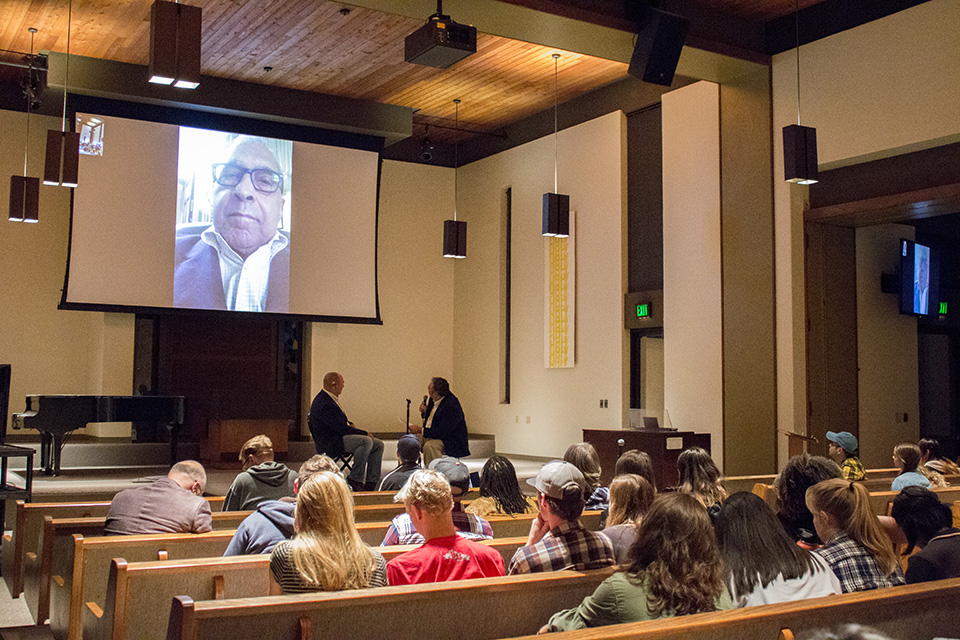As a way to introduce students to a different perspective on the multiracial topic, the political science department hosted a screening of the film “I am” on Thursday.
a pretty probing film
The film dealt with the question “Is race a truth or a power?” and documentary producer and writer of the film Eli Steele’s journey in deciding what race to check for his son, Jack, when registering him for school. With his own multiracial background, Eli wanted to see his son not defined by checking a certain box.
“When I had to go register him for school, I was told that he [could] only pick one race or he would not be allowed to enroll,” Eli said. “I was shocked by that because… you’re denying him his education if I won’t pick a race for him. Why are they doing this? Why is his race that important?”
In the five year process of making the film, Eli interviewed individuals mostly from California and Florida to understand the topic beyond his own journey. However, the film highlights several of Eli’s interactions with the Los Angeles Unified School District in figuring out whether to identify Jack’s primary race as black, Jewish, Hispanic or white.
Eli’s father Shelby Steele believes he analyzes the problem of race versus identity well with these different perspectives.
“I think he has turned out a pretty probing film that sort of looks at how the idea of race and identity conflicts with what is human in all of us. And you see the identity stepping on the human,” Shelby said to the audience. “And I thought he did a really fine job of highlighting that so that we could see it in different contexts.”
Eli believes that while some viewers will disagree with the film’s message, others will see themselves in his story. Regardless, he hopes students will open up to the discussion concerning race and remain unafraid of different perspectives.
‘What are you?’ versus ‘Who are you?’
“If you believe in your point of view, you should be secure in that,” Eli said. “I’m a minority many times over: I’m Jewish, I’m black and I’m deaf. There’s nobody out there [who] gave me a safe space, and thankfully I never had that, because… if I’m wrong, I’m wrong. But that’s the only way you grow.”
In America, Eli hopes the question will change from “What are you?” to “Who are you?” For college students, Eli believes there remains a unique challenge for those thinking about race, but encourages them to hold to their values.
“You grew up in America where people would teach you how to treat people equally and fairly and [to] look past those differences to your commonalities. And sometimes when you get to college you’re handed your race card or you’re divided. It’s important not to forget those lessons that you grew up with, because you’ll eventually return to them,” Eli said.
Associate professor of political science Darren Guerra also believes students can learn how to ask good questions from the film.
“I think what the film does well is it asks good questions,” Guerra said. “He’s asking, ‘Why the boxes? Why do we need so many boxes?’ I mean those are just fair, good questions, right? And there’s got to be answers. So, I think that’s one thing to take away, that whatever we’re studying, whether it’s race or something else… let’s not be afraid from asking good questions.”







